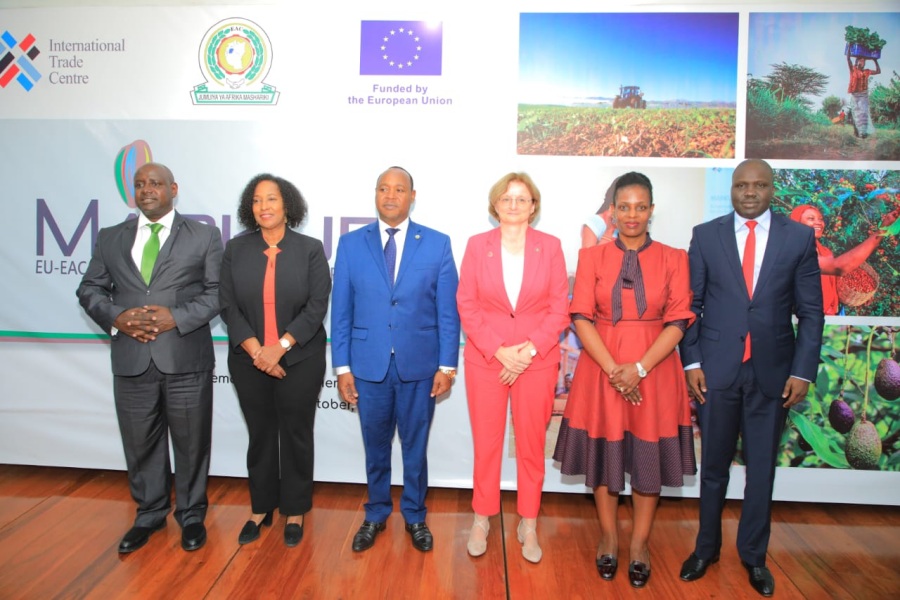The East African Community (EAC) and the European Union (EU) have officially initiated the second phase of the EU-EAC Market Access Upgrade Programme (MARKUP II) in Arusha, Tanzania. This €40 million regional initiative, funded by the EU, aims to unlock the full potential of agribusinesses within the EAC.
Implemented by the International Trade Centre (ITC) in collaboration with the EAC Secretariat, MARKUP II is set to support small businesses in the EAC by enhancing regional and international trade.
Read more: HELB disburses funds to students after outcry
Building on the successes of its predecessor, MARKUP I, this new phase will concentrate on EAC priority sectors, including avocado, cocoa, coffee, essential oils, French beans, gum arabic, horticulture, leather, packaging, spices, and tea. With an emphasis will on processing, value addition, diversification, investment, and export linkages.
A regional Steering Committee chaired by the EAC Secretariat, with representation from relevant national ministries, will oversee the program’s overall direction.
Hon. (Dr.) Peter M. Mathuki, Secretary-General of the EAC, highlighted the substantial contributions of the MARKUP program, citing improvements in coffee processing, coffee cupping certifications, resource efficiency, and circular production in the tea and coffee sectors within the region.
“About 700 enterprises specifically MSMEs in the region were supported through MARKUP I to improve their business operations and export. International transactions worth more than USD 10 million were generated and MSMEs accessed finances worth USD 9 million,” remarked Dr. Mathuki
H.E. Christine GRAU, European Union Ambassador to Tanzania, expressed the EU’s commitment to supporting East African companies, fostering sustainable growth, and creating decent job opportunities through MARKUP II.
While Ms. Pamela Coke-Hamilton, Executive Director of the International Trade Centre, commended the successful results of MARKUP I and highlighted the joint efforts to strengthen the region’s agricultural and horticultural sectors.
“Our joint efforts to strengthen the region’s agricultural and horticultural sectors will help small businesses become more competitive on the international stage and help deliver on sustainable development priorities for the region and the continent,” Said Ms. Pamela
Read more: Kenya Airways, airBaltic form strategic partnership to boost travel
Notable achievements of MARKUP I include a significant increase in EAC exports, with coffee exports to EU markets more than doubling from €488 million in 2018 to €1.1 billion in 2022, and avocado exports growing from €85.5 million to €112.4 million. The program also empowered 37,819 small and medium enterprises to enhance their competitiveness in international markets.
In its first phase, MARKUP facilitated over USD 16 million in sales and exports for more than 115 companies. Additionally, it attracted USD 1 million in investment for over 70 small businesses. More than 40 business support organizations reported increased effectiveness through their involvement in the program.
Email your news TIPS to editor@thesharpdaily.com












